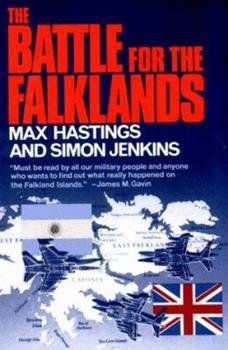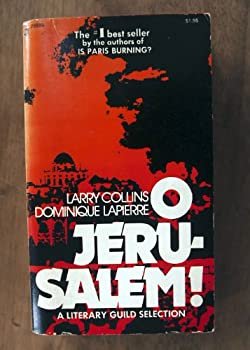Scharre: Army of None: Autonomous Weapons and the Future of War. Recommended by someone here on the board and definitely an interesting topic.
You are using an out of date browser. It may not display this or other websites correctly.
You should upgrade or use an alternative browser.
You should upgrade or use an alternative browser.
What Are You Currently Reading?
- Thread starter CDG
- Start date
I’m currently listening to Retribution by Max Hastings. Having listened to the most recent Hardcore history I was quite intrigued.
I do not have a ton of time (read absolutely fucking zero) to actually read, so I spend my drives and mornings setting up OR’s listening to books on tape and podcasts.
If time or circumstances allow, here's another very good one from Max Hastings. It's probably available as an audio.

- Joined
- Sep 28, 2009
- Messages
- 4,305
I just finished
American Ceasar.
American Ceasar.
ThunderHorse
Verified Military
Finished Soccernomics. If you're into sports and how sports run, very good read. Full of Data so it can be extremely dry. The authors seem to have a very shallow understanding of Football in the US and its place in American culture. But as a Sports Executive working in Rugby, it was very informative from a global perspective. 

I mean mate, it's in the title ;)
Do you think the premise on the cover holds up? Interesting how nations rise and fall in sports.
Do you think the premise on the cover holds up? Interesting how nations rise and fall in sports.
One of my favorite booksI'm currently reading With the Old Breed by E.B. Sledge. I am very much enjoying it.
ThunderHorse
Verified Military
I mean mate, it's in the title ;)
Do you think the premise on the cover holds up? Interesting how nations rise and fall in sports.
Generally, for soccer? I do. Although I wonder what "middle class" means in the UK. In the US your "class" is directly tied to how much money you earn regardless of your education for the most part unless you go towards the true refined "old money".
- Joined
- Sep 12, 2012
- Messages
- 13,655
Just started “Into the Fire”, the story of Dakota Meyer and how he was awarded the Medal of Honor. Meyer was the first living Marine in nearly 4 decades to earn the Medal and its a gross understatement to say that his three rows of ribbons look significantly different than the 3 rows I was sporting back in the day!
I appreciate the fact that other things than a short stint with Sarah Palin’s daughter, he’s mostly kept out of the public eye; although I think he had a cameo on that Mat Best zombie movie from a few years ago.
I appreciate the fact that other things than a short stint with Sarah Palin’s daughter, he’s mostly kept out of the public eye; although I think he had a cameo on that Mat Best zombie movie from a few years ago.
- Joined
- Jul 7, 2016
- Messages
- 597
Does anyone have a recommendation for books regarding the conflict of Israel vs Palestein?
Does anyone have a recommendation for books regarding the conflict of Israel vs Palestein?
Thomas Friedman, From Beirut to Jerusalem
Topkick
Verified Military
Just started “Into the Fire”, the story of Dakota Meyer and how he was awarded the Medal of Honor. Meyer was the first living Marine in nearly 4 decades to earn the Medal and its a gross understatement to say that his three rows of ribbons look significantly different than the 3 rows I was sporting back in the day!
I appreciate the fact that other things than a short stint with Sarah Palin’s daughter, he’s mostly kept out of the public eye; although I think he had a cameo on that Mat Best zombie movie from a few years ago.
Just recently watched the Rogan podcast with Dakota Meyer. Good dude.
- Joined
- Apr 22, 2020
- Messages
- 18
Just finished "The Experience of God" by David Bentley Hart. True to the quote, that man is walking thesaurus. "Theological Territories" now.How Jesus Became God: The Exaltation of a Jewish Preacher from Galilee by Bart Ehrman
Quick quip about it: Bart D. Ehrman explores how an apocalyptic prophet from the backwaters of rural Galilee crucified for crimes against the state came to be thought of as equal with the one God Almighty Creator of all things.
His corpus is almost worth reading for the sheer volume of philosophical Howitzer batteries that he uses against....well, everyone.
This is an older book...but one of the best accounts of the Israeli War of Independence I've ever read and I recommend it. It's also available on Chirp as an audiobook, read by the very capable Frederick Davidson.

I've long been a student of Israel's wars and have a pretty significant collection of books on the subject. This is top of the pile.

I've long been a student of Israel's wars and have a pretty significant collection of books on the subject. This is top of the pile.
Devildoc
Verified Military
Just finished The Terminal List. I liked it, with or without the series on Amazon. Looking forward to more of Carr's books.
MIkeH92467
Unverified
I just finished the audiobook version of "Wahoo" by Admiral Richard O'Kane. Very interesting, especially if you've read "War Fish", George Grider's memoir from serving aboard Wahoo and his experiences with other subs. I learned something I had no idea of: O'Kane mentions that pre WW-II ambitious officers who graduated from sub school were encouraged to "broaden their experience" by going back to surface ships. When the war broke out, new submarine captains often had less experience in submarines than some of their subordinates. There were also interesting insights into the scandalous issues surrounding the Mark XIV torpedoes as well as issues with the Mark XVIII that I was not aware of.
The 14s and 15s were shit. The Mark 6 exploder was shit. Some ran too deep, some went in circles lol…so many defects. A fucking crime it took two years to upgrade.
Similar situation to the M16 defects early in the Vietnam War.
Similar situation to the M16 defects early in the Vietnam War.
There were also interesting insights into the scandalous issues surrounding the Mark XIV torpedoes as well as issues with the Mark XVIII that I was not aware of.
That saga is ridiculous. I've read a number of WWII sub books or general histories and the Navy's Ordnance Bureau was criminal in its negligence. Sink 'Em All by Charles Lockwood is a great one...I can't remember the others. Clay Blair is maybe THE sub history expert of WWII (and a former sub officer), so his books (especially the series on German U-boats) are golden .
One note is both the US and Germans had very similar issues with their torpedoes. One nation was responsive to its skippers, but another was not...I'll let everyone guess which was which.
That's not one of his I've read though Is Paris Burning is excellent, I'll check it out.This is an older book...but one of the best accounts of the Israeli War of Independence I've ever read and I recommend it. It's also available on Chirp as an audiobook, read by the very capable Frederick Davidson.
View attachment 40044
I've long been a student of Israel's wars and have a pretty significant collection of books on the subject. This is top of the pile.
Just starting "Patriots Creed"- Kris Paronto
